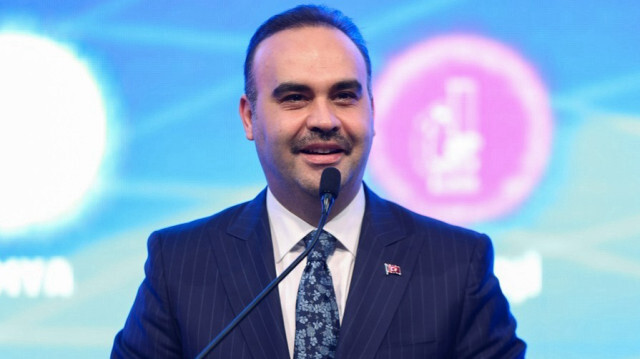
Türkiye's industry and technology minister hailed the return on Monday of the country's first astronaut from a mission to the International Space Station (ISS), saying a new chapter in space science and technologies has opened for the nation.
Speaking at the arrival ceremony for Alper Gezeravci in the capital Ankara, Mehmet Fatih Kacir said his space mission was the just the beginning.
"Within the scope of the mission, 13 scientific experiments prepared by Turkish scientists were successfully completed by our astronaut under microgravity conditions in the laboratory infrastructure on the International Space Station,” Kacir said.
"Our first crewed space science mission will bring significant gains to the research conducted by our scientists in the disciplines of biology, medicine, genetics, physics and materials science."
In the experiments carried out by Gezeravci, the effects of microgravity and other conditions in space on human health, physiology and the immune system were investigated, he added.
He said the greatest result of this historical mission was the message it presented to Turkish youth and children to give them self-confidence.
- Targets
Kacir also emphasized the country's targets in the field.
"We will carefully evaluate the outcomes of the scientific experiments of our crewed space science mission and provide the necessary support to continue this research.
"We will finalize preparations for our next astronaut mission and ensure that our second astronaut will conduct scientific experiments on a suborbital flight. We will initiate programs to conduct further scientific research on the ISS and strengthen international cooperation," he added.
Kacir also said they would evaluate possible international collaborations for other crewed space missions and that they would initiate research and development programs for the development of space stations and other systems used in space missions.
He said the country would also establish a space technology development zone in Ankara and develop the space industry and attain a larger share of the global space economy, which reaches $600 billion annually.
Türkiye will continue its independent access to space programs, its projects to develop launch rockets will continue, and it will establish a spaceport with international cooperation by 2030, Kacir said.
"We will realize our moon program. We will reach the moon with a spacecraft designed and built by our own engineers and scientists, with a propulsion system developed with national capabilities," he said.
By realizing the regional positioning and timing system project, Türkiye will achieve a strategic gain that will strengthen its technological independence in the defense industry and civilian areas, he noted.
He added that by completing the Eastern Anatolia Observatory Project, Türkiye will have the most advanced telescope in its region.
- Türkiye to get share in space activities
Gezeravci said at the press conference that "with the education provided to me by my country and the capabilities it has given me, I have accomplished this mission.”
"The strong will of our president and all the institutions of our state, like the perfectly functioning cogs of a wheel, did not allow any disruptions," he added.
He expressed his gratitude to the employees of the Turkish Ministry of Industry and Technology, Turkish Space Agency and the Scientific and Technological Research Council of Türkiye, which managed the preparation process.
"Türkiye will get the share it deserves in space activities. No one should have any doubts," he added.
- Journey
Gezeravci joined Italian, Spanish and Swedish astronauts on the Axiom-3 Mission, which was launched from NASA's Kennedy Space Center in Florida on Jan. 19 on a SpaceX Falcon 9 rocket.
Its crew docked at the ISS the next day. During their over-two-week stay on the station, Gezeravci, a Turkish Air Force pilot, and his three crewmates carried out over 30 scientific experiments, around half of them by Gezeravci himself.
The capsule undocked from the International Space Station on Feb. 7 and began its return to Earth.
SpaceX's Dragon Capsule, carrying the crew, splashed down successfully on Saturday off the coast of Florida.













